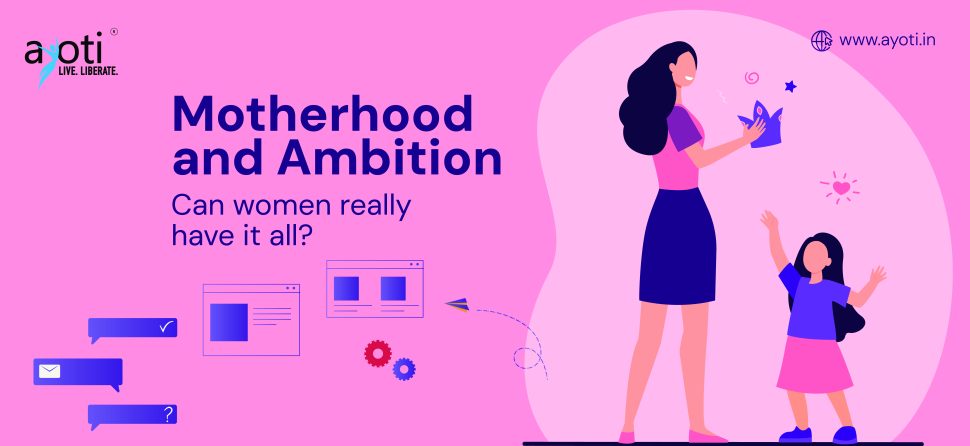By ayoti
Motherhood and Ambition: Can Women Really Have It All?
In today’s fast-paced world, women are constantly striving to balance multiple roles. Motherhood, career ambitions, and personal development all demand time, energy, and attention. The age-old question persists: Can women really “have it all”? The answer isn’t as simple as a yes or no. It depends on how society, workplaces, and individuals define “having it all” and what support structures are in place to help women achieve a harmonious balance between their ambitions and responsibilities.
The Myth of “Having It All”
The phrase “having it all” was coined to reflect the idea that women could excel in their careers while raising a family and maintaining personal fulfilment. However, this concept is often romanticized, creating an unrealistic standard for women to measure themselves against.
The truth is that “having it all” looks different for every woman. For some, it may mean advancing in their careers while nurturing their children; for others, it could mean staying home to focus on family without sacrificing personal goals. It is essential to dismantle the notion that a one-size-fits-all solution exists. Women should have the autonomy to define success and fulfilment on their own terms, whether that means prioritizing career, family, or a blend of both.
Challenges Women Face
Despite progress in gender equality, women still face significant challenges in balancing motherhood and careers. Workplace expectations often do not accommodate the unique needs of mothers, leading to a sense of compromise in one area or another. This is further complicated by societal pressures that dictate what a “good mother” or a “successful career woman” should look like.
- Workplace Bias: Women often encounter bias in the workplace, especially after becoming mothers. There’s an underlying assumption that they are less committed to their jobs after having children. This can lead to fewer promotions and opportunities for advancement. On the other hand, women who focus heavily on their careers may be judged for not spending enough time with their families.
- The Mental Load: Motherhood comes with an invisible, yet heavy, mental load. Women often take on the majority of the planning, organizing, and managing of the household in addition to their professional responsibilities. This cognitive labour can be exhausting, leading to burnout and feelings of inadequacy in both roles.
- Work-Life Imbalance: The traditional 9-to-5 job structure often clashes with the demands of motherhood. School hours, medical appointments, and the need for flexibility in emergencies are rarely aligned with rigid work schedules. As a result, many women feel compelled to choose between their professional and personal lives, making the idea of “having it all” seem more like a myth.
A Shift in Perspective
To move towards a more equitable future, it’s crucial to shift the conversation from “having it all” to “having what works for you.” This means creating environments—both at home and in the workplace—that support women in their choices. Employers need to recognize that flexible work arrangements and family-friendly policies are not just perks but essential tools that allow women to thrive both as mothers and professionals.
Many companies are already beginning to recognize the importance of flexible work environments. Remote work, flexible hours, job-sharing, and parental leave policies are becoming more common. These initiatives allow women to maintain their career ambitions without sacrificing family time. Moreover, sharing the mental load at home can foster more equitable partnerships, reducing the pressure on women to “do it all” by themselves.
Conclusion
Ultimately, the idea that women can “have it all” is subjective and dependent on individual circumstances. However, with the right support systems in place—whether it be family help, flexible work arrangements, or a more equitable division of household labour—women can lead fulfilling lives both at work and at home.
Companies like Ayoti Technologies demonstrate that when workplaces evolve to accommodate the realities of modern motherhood, women no longer need to choose between their ambition and their children. Instead, they can create their own versions of “having it all” in a way that works for them. By continuing to challenge societal norms and advocate for more flexible work environments, we can move closer to a world where women truly can achieve balance without sacrifice.





